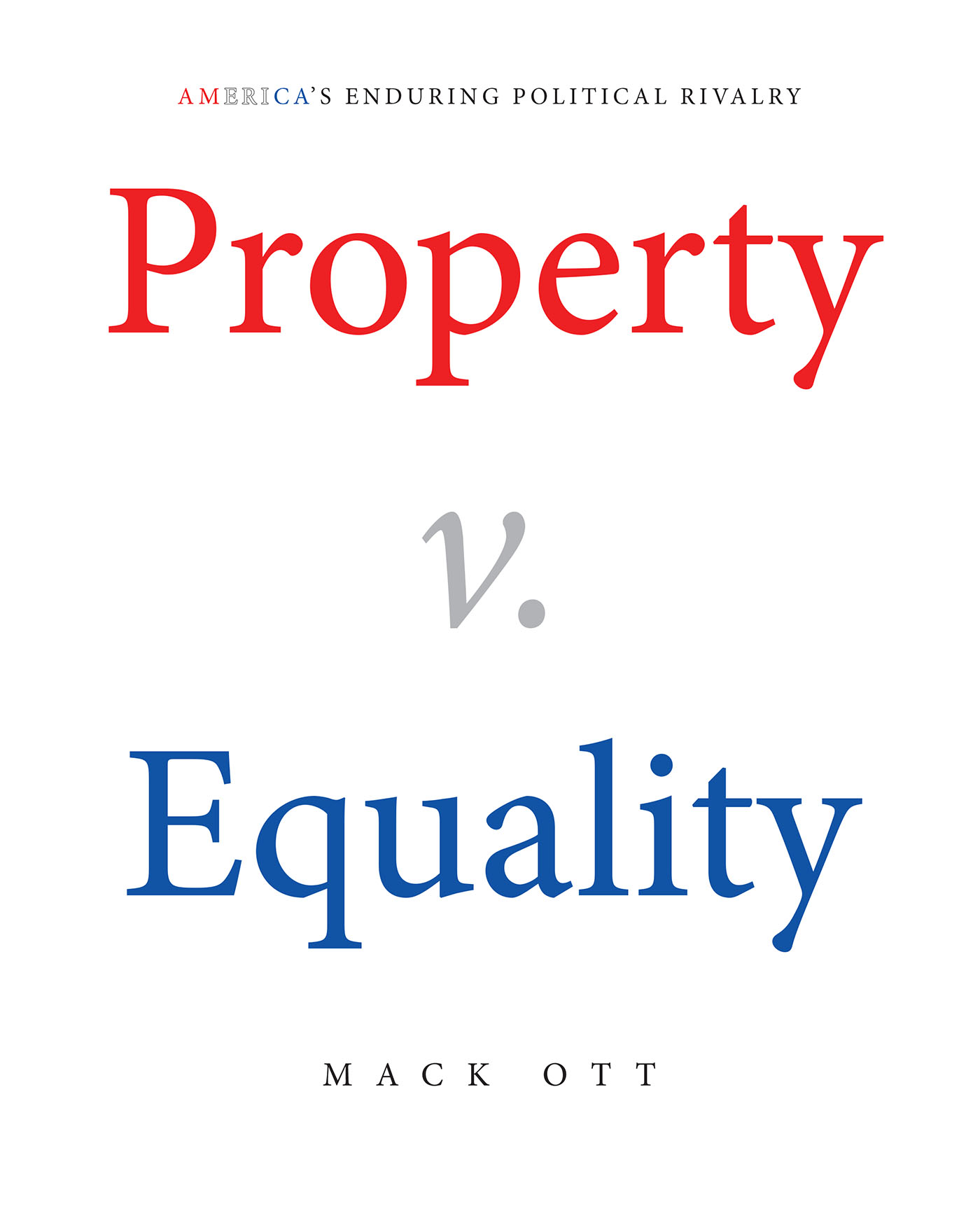
Property v. Equality
The tension between property and equality, as the Founders expressed it, or liberty and equality as commonly expressed today, has been a central issue for democracy since its beginning in Athens. The US founders addressed the problem with commitments to the protection of individual liberty and to equality of opportunity. Central to these commitments are private property rights and their enforcement, recognizing the diversity of individual interests and abilities and their rights to develop both as they choose. As James Madison put it in "The Federalist Papers," "the protection of the faculties (of men and their diversity, the original source of the rights of property) is the first object of government." That this is the greatest obstacle to a pursuit of a uniformity of interest as it would imply an equality of outcomes instead of opportunity. Thus, a political commitment to the pursuit of equality fosters continual questioning of its achievement and on what terms. In his new book, Property v. Equality--America's Enduring Political Rivalry, Mack Ott weaves the history of our democracy with the evolution of its political parties, the role of voting, its government and its institutions, with the central concern for the evolving tension of equal liberty with various and different levels of property. From the outset, Ott argues the problem of slavery presented deep moral and political problems. The importance of political compromise between the states to secure the adoption of the Constitution led the founders to put off abolition and settle initially for an end to importation of the enslaved in twenty years. Most states outlawed slavery well before 1860, but the end of slavery did not come easily. It was the presidency of Abraham Lincoln and his restoration of the Union that removed the biggest obstacle to liberty and equality. Ott explains that Lincoln also had a full agenda of other policies. Lincoln's "fair chance" aimed to provide Federal assistance to the emergence of greater equality. He successfully introduced three programs to enhance public welfare and the common good: assistance to develop roads and a federal highway system, the Homestead Acts to aid people to acquire property and residences at subsidized prices, and the Land Grant College program to assist states in developing institutions of higher education for young people. Lincoln's notion of a fair chance reflected his desire to expand the Federal role in promoting the common good and the enhancement of economic equality. The Civil War also brought to the center of political attention a practical obstacle to the achievement of balance between liberty and equality, according to Ott. This was the inability of federal revenue to provide a growing revenue base to support economic growth and intervention in major shocks, especially war. Except for a brief period during the Civil War, income taxation had not been available because it was viewed to be unconstitutional. In 1913, the Supreme Court ruled that direct taxation of citizens did not violate the Constitution. In the implementation of the Sixteenth Amendment, Congress allowed for progressive taxation--people of higher incomes would face higher tax rates than those with lower incomes. Lincoln laid the basis for an expanding Federal role in the economy and showed the way to progressively fund the Federal government. Perhaps the second major challenge to the pursuit of liberty and equality led to the election of Franklin Roosevelt. To confront the Great Depression, Roosevelt embarked on a major expansion in the Federal role in the American economy and control of much of the private sector. His success led to new debates over that role, in which liberty-versus-equality issues were central. With the death of Roosevelt and end of the Second World War, the political economy continued to expand the role of the government and to stabilize the structure of Roosevelt's new institutions. The nation's success in war expanded its role in the world and dominated political and economic life, allowing the end of state-regulated economic inequality under Jim Crow and the end of the "separate but equal" regime established with Plessy v. Ferguson (1896) with the Supreme Court's Brown v. Board of Education (1954). The latter established the possibility for racial equality in education. Much further progress toward racial equality ensued in the 1960s, with civil rights reforms across all aspects of public life, from voting to housing, employment, and other aspects of public life. The 1970s stagflation amplified the nation's concerns with inflation and growth. It was compounded by energy price shocks that permanently lowered productivity and real incomes well into the early 1980s. An equality of general decline in virtually every aspect of life settled in. Ott traces the shift in economic policies that ended stagnation and restored economic growth from the 1980s to 2000. Ott outlines the forces that led to the slower growth of population, the labor force, capital formation and innovation in the first two decades of this century, forces that threaten the advance of liberty and equality in the future and the growth of federal revenue necessary for the continuation of a larger Federal role in that struggle. Deteriorating indicators of economic equality raise doubts about the nation's ability to protect the public. These developments suggest to Ott that the role of government has become overstretched and that its ability to widen the pursuit of liberty and economic equality has become tenuous. Two recent developments, advances in artificial intelligence (AI) coupled with the proposal for a universal basic income (UBI), may offer a way out. Linking the possibility that AI could renew major advancements in productivity and the standard of living, with suggestions for a government provided UBI, might provide a floor for future gains in income. But Ott also notes the difficulties of moving forward toward either AI or UBI without seriously damaging liberty and whether they would enhance equality. The issues posed by our pursuit of property and equality will continue, will likely do so on new ground.-- Mack Ott





